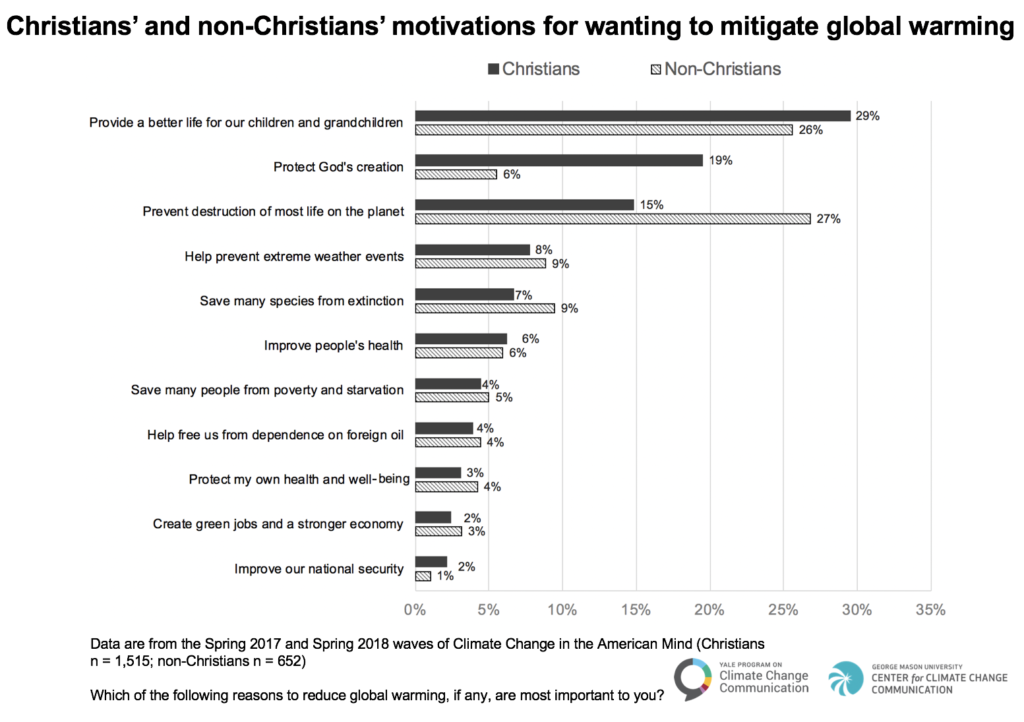Peer-Reviewed Article · Jul 12, 2019
Engaging Christians in the Issue of Climate Change
By Matthew Goldberg, Abel Gustafson, Matthew Ballew, Seth Rosenthal and Anthony Leiserowitz
Filed under: Audiences and Messaging

We are pleased to announce the publication of a new research article, “A Social Identity Approach to Engaging Christians in the Issue of Climate Change” in the journal Science Communication.
Research shows that people derive values, a sense of self, and social norms from the groups to which they belong. Messages that resonate with group identities may be especially effective in influencing people’s attitudes. About 70% of the United States population identifies as Christian. Accordingly, we investigated how Christian Americans respond to messages that frame environmental protection and climate change as religious issues.
Our national survey data indicates that one of the top motivations among Christians in the U.S. for wanting to reduce global warming is to “protect God’s creation.” Further, experimental data indicates that “stewardship” messages about protecting God’s creation lead Christians in the U.S. to increasingly view environmental protection as a moral and religious issue and to increase their belief in the social norm that other Christians care about environmental protection. These changes in beliefs, in turn, lead Christians in the U.S. to increase their own pro-environmental and climate change beliefs.
Overall, our findings suggest that some Christians already view climate change through a religious lens. Further, this research suggests that moral, religious, and social normative frames can be effective ways to engage Christians in the issue of climate change.
The full article is available to those with a subscription to Science Communication. If you would like to request a copy, please send an email to climatechange@yale.edu, with the subject line: Request Christian Social Identity Paper.
Goldberg, M. H., Gustafson, A., Ballew, M. T., Rosenthal, S. A., & Leiserowitz, A. (2019). A social identity approach to engaging Christians in the issue of climate change. Science Communication, doi:10.1177/1075547019860847
Part of this research project utilizes data from the Climate Change in the American Mind surveys, conducted by the Yale Program on Climate Change Communication and the George Mason University Center for Climate Change Communication. This project was supported by the Schmidt Family Foundation, the U.S. Energy Foundation, the Grantham Foundation, and the MacArthur Foundation.
